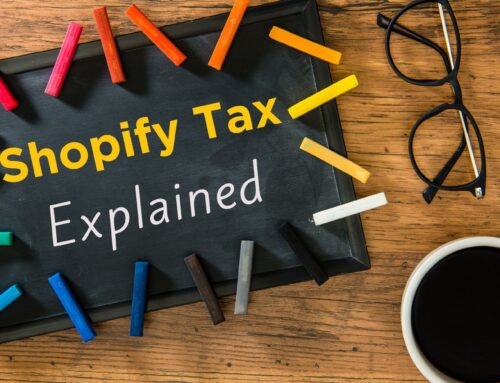
If you’re an online seller, finding an accountant who understands Amazon and Shopify can be tricky. One of the biggest concerns I hear from people who sell online is that they can’t find a bookkeeper or accountant who understands e-commerce and the sales channels they use. There are some nuances that make it different from traditional bookkeeping and it can really mess up your numbers if it’s done wrong.
In this blog, I will share some tips to remember and questions to ask when you’re interviewing accountants and bookkeepers for your Amazon or Shopify business.
Watch my video on finding an e-commerce accountant who understands Amazon and Shopify
E-commerce knowledge and experience
The first thing that you want to ask about is their e-commerce knowledge or experience. When my firm, VM Wasek, shifted our focus to working with eCommerce sellers, there was a big learning curve.
We had to do a lot of learning, a lot of training, and find resources to help us to understand how Amazon and Shopify work, in terms of the numbers. You have to understand how everything works before you can account for it properly.
You want to ask the accountant if they have experience with Shopify, Amazon, Etsy or whatever sales channel you’re selling on.
Challenges with various sales channels
Ask them what challenges their clients are experiencing in using these different sales channels (if they aren’t working with any e-commerce clients, that’s a red flag on their experience).
The most common challenge that we see is the amounts coming from your sales channel don’t match what QuickBooks brings over from the bank feed. This happens because the bank is the net amount from the payment processor, so it doesn’t match what’s happening on your sales channel. Your accountant will need to know how to read your reports, record refunds, sales tax, processing fees, etc., and reconcile all of that to what’s being deposited in QuickBooks.
Inventory tracking
Inventory can get quite tricky, especially if you’re selling on multiple channels. You’ll want to ask the accountant what they know about tracking inventory in QuickBooks. Should you be tracking your e-commerce inventory in QuickBooks at all, especially in QuickBooks Online?
Generally, what I recommend is that you shouldn’t be tracking inventory at a detailed level in QuickBooks Online. You’re better off initially using spreadsheets and then moving toward an online inventory app to manage your inventory, especially if you’re selling on multiple channels.
Tracking profitability
Ask the accountant how they’re going to structure your financials so you can get a clear view of your profits, especially profits by channel. A good accountant will understand what you need and be able to explain it to you. They would likely be using classes to track income and expenses by channel.
Another thing that you might ask is how they track your marketing spend, and if they can track that by channel.
Maximizing cash flow
Ask the accountant what they recommend to help you improve your cash flow. Generally, we look at how much money is tied up in inventory and how much money you have set aside to purchase additional inventory.
Sales tax
Sales taxes can be very complicated for e-commerce sellers. Ask the accountant if they are experienced with the unique sales tax concerns of e-commerce businesses. If you’re selling on Amazon, and if you’re an FBA seller, then you may have to deal with marketplace facilitator states. If you’re selling on Shopify, or if you’re selling through your website, then you’d really need to see if you have some exposure when it comes to sales taxes in different states. A good e-commerce accountant will know how to navigate these sales tax concerns.
Services to be provided
Next, you want to understand what services they’re actually going to provide to you. Find out what is included and make sure they’ll provide you a written service agreement or an engagement letter.
Pricing
Ask about their pricing. Do they give you upfront pricing? Or do they charge by the hour? With upfront pricing, you have peace of mind knowing exactly how much the services are going to cost. If they’re charging by the hour, then you’re running some risk. You really don’t want them to do all this work and then find out they’re charging you way more than you thought.
Focus on benefits and value received
While we’re talking about pricing, I would highly encourage you to avoid simply comparing what ‘Accountant A’ is charging you versus what ‘Accountant B’ is charging you. What you should be comparing are the services they are going to provide to you.
Perhaps ‘Accountant A’ charges more, but they give you more value and they do more for you. Be clear on what they’re providing to you and make sure you understand what that is. Keep in mind that if they seem too cheap, well, you get what you pay for, so beware!
Closing
So remember, ask plenty of open-ended questions. Don’t just rely on the fact that you like their personality and that they’re nice people. Make sure you go through these questions with them and get satisfactory answers before choosing an accountant or bookkeeper. I hope this helps you with finding an e-commerce accountant who understands Amazon and Shopify.
If you would like to reach out to me, my firm VM Wasek specializes in e-commerce for Shopify, Amazon, and Walmart sellers. Click on this link to learn more about my services and see if my team is a good fit to help you elevate your e-commerce business and reach your goals.




